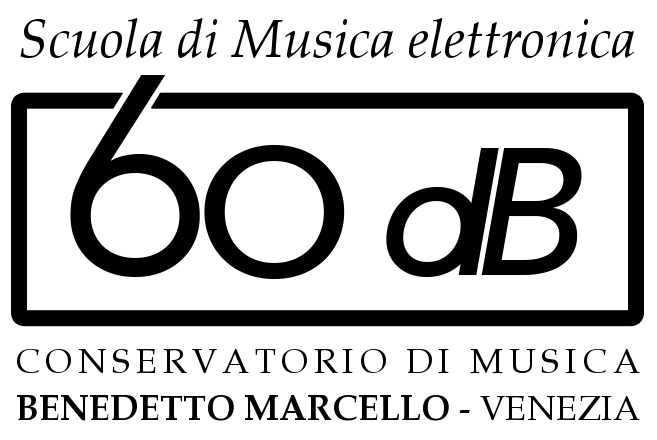The electronic music course at the State Music Conservatory "B. Marcello" of Venice: a historical outline*
With a telegram dated 21 October 1972 the Ministry of Education authorized the State Music Conservatory "B. Marcello" of Venice to activate a "free course" in electronic music. The teching was given ad interim to Giuseppe Sinopoli. The course started from Wolfgango Dalla Vecchia's proposal of "updating" the composition program and applying for the establishment of a three year course in electronic music, along the courses in pedagogy of musical composition. Helped by Enrico Giovene, Giuseppe Sinopoli submitted to the director of the Conservatory, at that time Nino Antonellini, a three year teaching program in "theory and composition of electroacoustic music" (the project had already been presented the year before). From the academic year 1975-1975, when Sinopoli left as a teaching to devote himself to the activity as an orchestra conductor, the professorship was given to Alvise Vidolin, who taught there until his retirement in 2008-2009. From the following year was appointed Paolo Zavagna (presently professor), who was temporarily replaced by Angelo Benedetti during an extraordinary study leave. Vidolin narrates his years in an interview to Laura Zattra:
At that time [1974-1975] I got some interim position, replacing Teresa Rampazzi [at the Conservatory of Padua] while she had been invited abroad [at Utrecht]. In this period I also started collaborating with Wolfango Dalla Vecchia. The work we did for the program CELLE and later for the program EMUS had nearly been a school of composition, because in order to write a computer aided composition program, the understanding of every inner workings and compositional processes was implied. In those years I spent much time at the Pollini, not exactly as a student but, as a matter of fact, like one of them. After that, I think it was 1975, Sinopoli who was teaching electronic music in Venice, started his activity as a conductor and left as a teacher. I applied for an interim position, which I got.
On October 1, 1975 Vidolin started his job at the Conservatory "B. Marcello" in Venice. As regards the three year "free course" in electronic music, the Ministry of Education "notified that free courses shall not exist wihtin Conservatories of Music any more. Thus, every authorized course not being listed in Tab. C of the law n.165 of 13/3/1958 are to be entitled extraordinary courses." Starting from that date the course became therefore in every respect an extraordinary course. Right away Vidolin, being aware that offering the students a minimal knowledge within one year only would not be viable, set up the course over a cycle of three years, anticipating the reform which made it spanning over four years. From the academic year 1992-1993 the enrolled students got thus their regular program lasting 4 years, with a teaching plan established by each individual Conservatory, and a regular diploma. However, the new system limited the admissions; to enrol the course in electronic music one had to be "in possession of either:
- a Conservatory diploma, or
- a mid term diploma in Composition, or
- a four year diploma in Experimental composition, or
- a mid term diploma of a ten year instrumental program, or
- a diploma of an experimental musical high school."
These constraints caused a remarkable freeze to the enrolment flow, nevertheless providing for a superior musical knowledge.
Regarding the period the Conservatories are currently going through, we can quote Vidolin again expressing his opinion in a four handed article written with Nicola Bernardini (Electronic music and the restoration of sound archives [La musica elettronica e il restauro dei documenti sonori], «Economia della cultura», 18/2, 2008):
the conservatories [after the reform issued by law n.509 approved on 2 December 1999] passed under the control of the Ministry of University and Research keeping the «higher education» part only and leaving others in charge of basic music education, essentially adopting the system proposed by the the so-called «Bologna process» (education spanning over two cycles - undergraduate and graduate, academic credit system, promotion of student mobility, etc.). Maybe it is too early to evaluate the results of the reform: its application went through temporary stages which are particularly complicated (an «experimental» stage funded actively by the state, then an «experimental» stage at «no-cost», then eventually, nowadays, a reform of the course system) and it is difficult to forecast how many conservatories and which ones will be updated and overcome this period, and in which way.
From the academic year 2013-2014, along the chair of Electroacoustic music performance practice held by Paolo Zavagna, the Conservatory of Venice established a second chair of Music informatics to strengthen especially the undergraduate programs, chair currently held by Giorgio Klauer.
* The text reworks the introduction (p. 1-6) by Paolo Zavagna (ed.), 60dB. The venetian school of electronic music. A tribute to Alvise Vidolin [60 dB. La scuola veneziana di musica elettronica. Omaggio ad Alvise Vidolin], Studi di musica veneta, 28, Olschki, Florence (2009), to which should be referred for furher references and in-depth analysis.
http://www.olschki.it/libro/9788822258830
to the top

